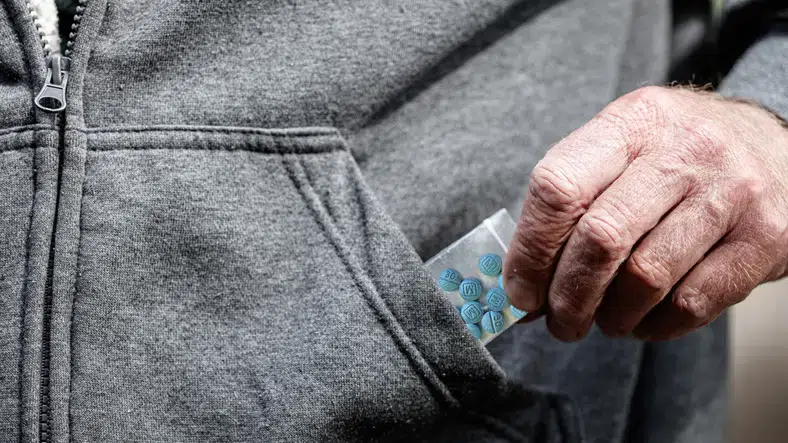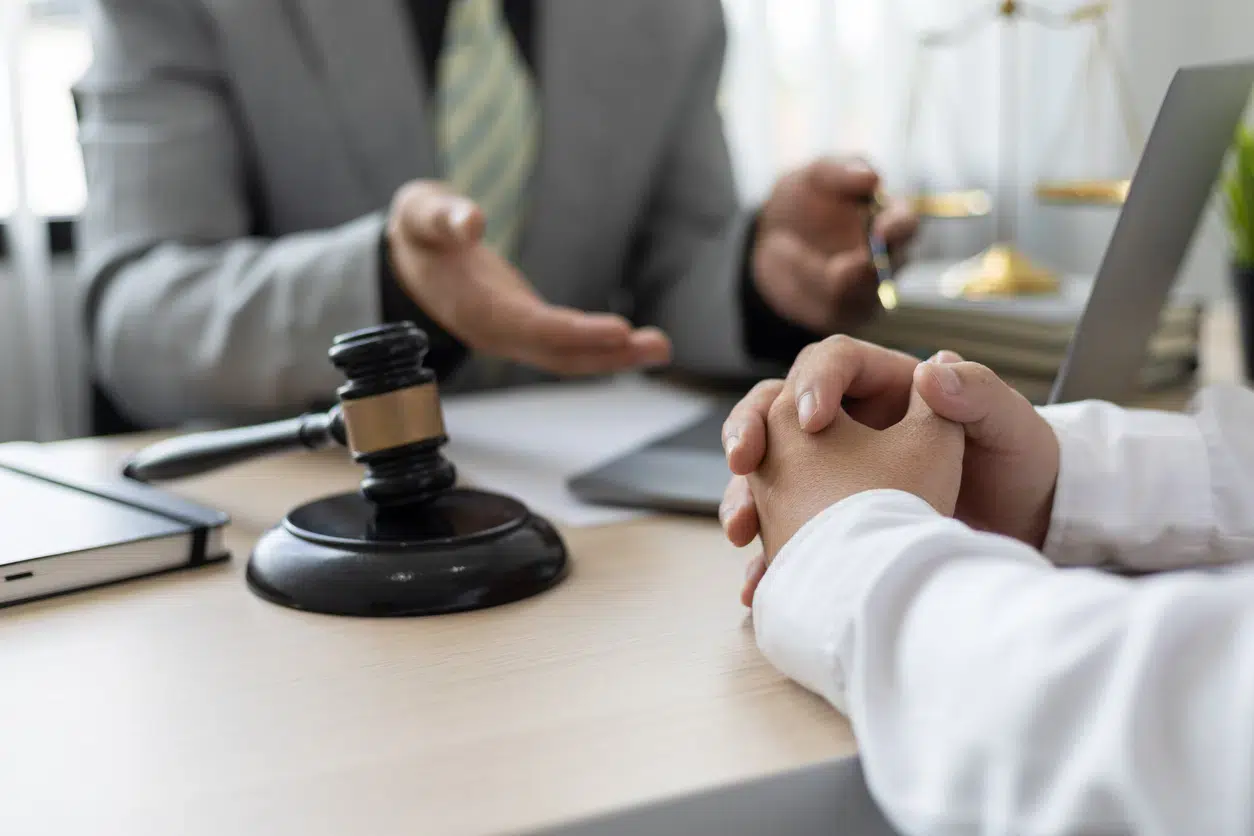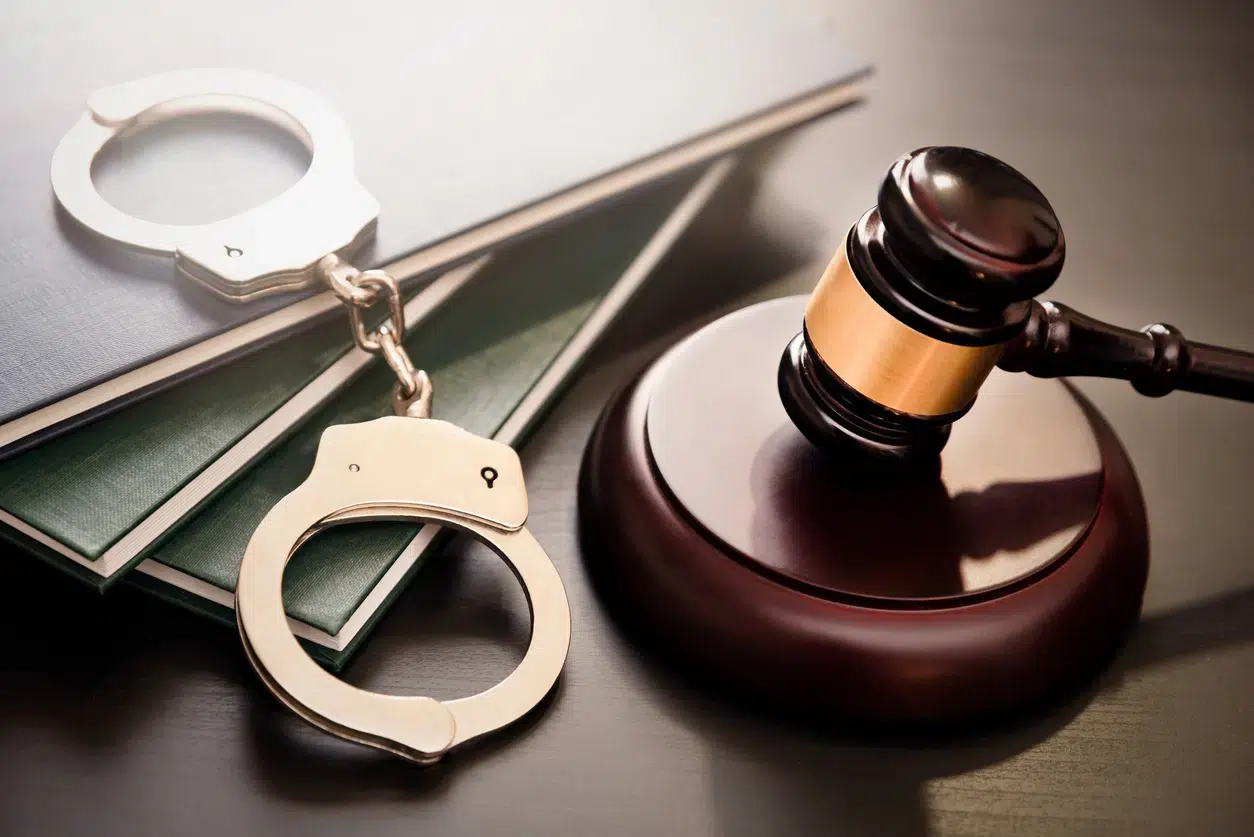Introduction to Drug Possession in Virginia
Virginia drug possession is a criminal offense involving illegal possession of controlled substances, including illegal narcotics and prescription drugs without a valid prescription. Controlled substances are divided into Schedules I–VI, based on their accepted medical use and potential for abuse.
Drug possession laws are primarily governed by the Virginia Code, sections 18.2-250 and 18.2-250.1, with penalties and consequences depending on the substance, its classification, and the circumstances of the offense. These laws cover both actual possession (drugs physically on your person) and constructive possession.
You should retain an experienced Virginia drug possession lawyer, such as Scott C. Nolan, to help you navigate the legal process and build a strong defense.

Understanding Controlled Substances
In Virginia, controlled substances are regulated under the Virginia Drug Control Act, which classifies drugs into Schedules I through VI based on their potential for abuse, accepted medical use, and safety.
Schedules and Definitions
Virginia categorizes controlled substances into six schedules, reflecting federal guidelines under the Controlled Substances Act but tailored to state law.
Schedule I drugs have a high potential for abuse, no accepted medical use in the U.S., and lack accepted safety under medical supervision, such as heroin and LSD.
Schedule II drugs also have high abuse potential but have accepted medical uses with severe restrictions, such as cocaine, oxycodone, methamphetamine, and Adderall without a prescription.
Schedule III drugs have moderate abuse potential and accepted medical uses, such as anabolic steroids, ketamine, and low-dose codeine.
Schedule IV includes drugs with lower abuse potential, such as Xanax, Valium, and Ambien.
Schedule V drugs have the lowest abuse potential among controlled substances, such as cough medicines with small amounts of codeine.
Schedule VI includes substances not typically considered drugs but regulated due to potential abuse, such as certain prescription medications and, in some contexts, marijuana. Each schedule determines the severity of penalties for possession without a valid prescription.
Virginia Drug Possession Laws and Charges
Drug possession in Virginia is classified as simple possession when the drugs are for personal use, distinct from possession with intent to distribute, which carries harsher penalties. Simple possession applies to actual possession and constructive possession, which are drugs in a place you control, with knowledge and intent to control.
You can be charged with drug possession in Virginia after a traffic stop, home search, or personal encounter with the police. Whether the arrest and charge is legal depends on the police having probable cause for stopping or searching you.

Penalties for Drug Possession in Virginia
Penalties depend on the drug’s classification and the quantity involved. Schedule I or II possession is a Class 5 felony, punishable by up to seven years in prison and/or a $2,500 fine.
Schedule III, IV, or V possession is a Class 6 felony, carrying a potential sentence of up to five years in jail and/or a fine of up to $2,500. Schedule VI possession is a Class 1 misdemeanor, carrying a potential penalty of up to 12 months in jail and/or a $2,500 fine.
Penalties for a drug possession conviction depend on the schedule, quantity, and your criminal record. You may face long-term consequences for a conviction, such as difficulty securing employment or housing.
A skilled Virginia drug possession attorney, such as Scott Nolan, can fight to reduce or dismiss charges and avoid these lasting effects.
Defending Against Drug Possession Charges
A primary defense strategy for a possession charge is to challenge the prosecution’s evidence of possession, which requires proving you knowingly and intentionally possessed the controlled substance.
For actual possession, defenses may focus on whether the drugs were truly on your person. For constructive possession, the prosecution must show both knowledge of the drugs and control over them. Defenses include arguing lack of knowledge or lack of control.
Virginia case law, such as Commonwealth v. Carter, emphasizes that proximity alone is insufficient; additional evidence, including fingerprints, ownership of the space, or incriminating statements, is needed. Weak evidence, especially in shared spaces, can lead to dismissal, thereby avoiding penalties such as jail or license suspension.
Another possible defense is based on constitutional protections under the Fourth Amendment against unreasonable searches and seizures. If police obtained evidence through an unlawful search, such as searching your car without probable cause, a warrant, or consent, the evidence may be suppressed, leading to dismissal.
Attorney Nolan will review your case in a free consultation to determine defenses most likely to lead to a favorable outcome.
Your Rights and Next Legal Steps
Remember if you are charged with drug possession, you have the right to remain silent, the right to a lawyer, and the right to be protected from illegal searches and seizures. The police must adhere to protocols when gathering evidence, and your defense lawyer can challenge any violations.
If you have been charged, do not answer police questions. Instead, call your defense lawyer and remain silent until they arrive. An experienced Virginia drug defense lawyer, such as Scott Nolan, can evaluate your case, explain your rights, and help build a tailored defense strategy.
Contact us
Fairfax Drug Possession Lawyer FAQs
Drug possession involves having illegal drugs or controlled substances on your person, in your vehicle, or property with knowledge and intent to use, distribute, or sell.
Penalties range from fines, probation, mandatory drug education programs, and possible jail time, with severity depending on the type and quantity of the substance.
Misdemeanor possession usually involves small amounts of illegal drugs with lighter penalties, while felony possession involves larger quantities, certain controlled substances, or prior convictions, resulting in harsher sentences.
First offenses may lead to misdemeanor charges with probation, fines, mandatory treatment programs, and possible diversion programs to avoid a criminal record.
A skilled attorney can challenge evidence, investigate the legality of the search, negotiate with prosecutors, and develop a defense strategy to reduce or dismiss charges.
Evidence may include proof of lack of knowledge, illegal search or seizure, witness testimony, surveillance footage, and discrepancies in police reports.
Law enforcement may arrest you based on probable cause, document personal information, file charges with the court, and possibly conduct searches for additional evidence.
Searches must comply with the Fourth Amendment and Virginia law. Evidence obtained illegally may be suppressed, which can be crucial to a defense strategy.
Probation may include reporting to a probation officer, attending treatment programs, community service, and compliance with court orders. Fines vary depending on the substance, amount, and prior offenses.
Yes. Eligible individuals may petition for expungement after fulfilling court-ordered requirements and waiting periods, which can remove the conviction from public records.
Yes. Drug possession charges can carry severe consequences. An experienced attorney is critical to challenge evidence, navigate legal procedures, and protect your rights.
Depending on evidence, procedural issues, and case circumstances, charges may be reduced to lesser offenses or dismissed, especially for first-time offenders.
The timeline varies depending on investigation, court scheduling, pretrial motions, plea negotiations, and trial proceedings, often lasting several months.
Yes. Convictions can impact job opportunities, professional licensing, rental agreements, and security clearances, making legal defense and potential expungement important.
Do not discuss the case publicly, preserve relevant evidence, and contact an experienced Fairfax drug possession lawyer immediately to protect your rights and build a strong defense strategy.


